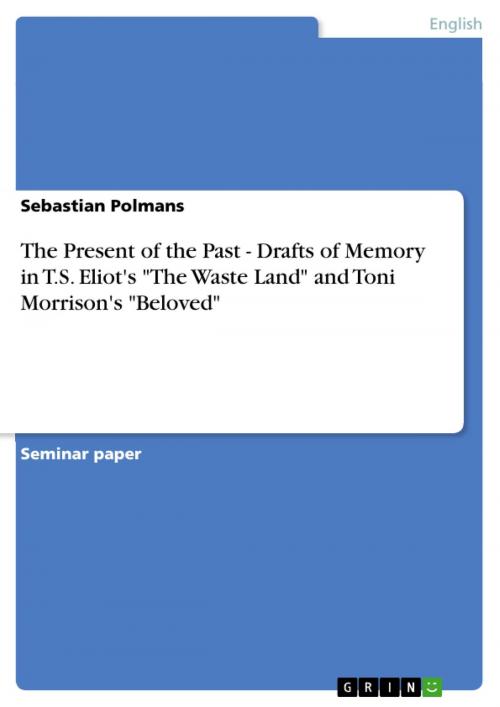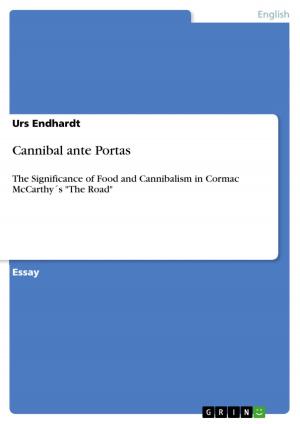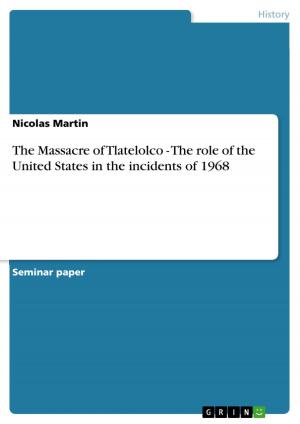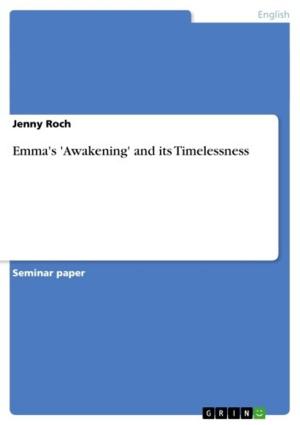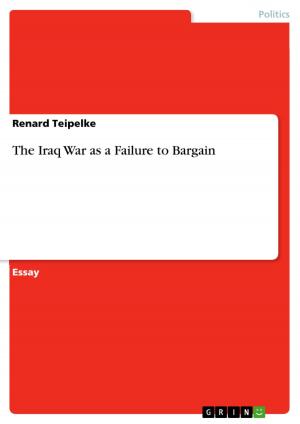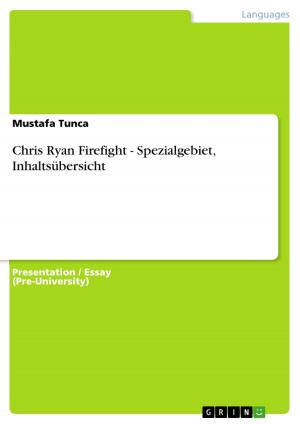The Present of the Past - Drafts of Memory in T.S. Eliot's 'The Waste Land' and Toni Morrison's 'Beloved'
Drafts of Memory in T.S. Eliot's 'The Waste Land' and Toni Morrison's 'Beloved'
Fiction & Literature, Literary Theory & Criticism, British| Author: | Sebastian Polmans | ISBN: | 9783638002721 |
| Publisher: | GRIN Publishing | Publication: | February 13, 2008 |
| Imprint: | GRIN Publishing | Language: | English |
| Author: | Sebastian Polmans |
| ISBN: | 9783638002721 |
| Publisher: | GRIN Publishing |
| Publication: | February 13, 2008 |
| Imprint: | GRIN Publishing |
| Language: | English |
Seminar paper from the year 2007 in the subject English Language and Literature Studies - Literature, grade: 1,0, University of Siegen, course: Noble Prize Winners. Instantly canonized?, 29 entries in the bibliography, language: English, abstract: In his book about 'Tradition' Edward Shils claims, 'there are two pasts.' One is the phenomenal past; the past of realism, the past of occurred incidents which builds a sequence of human action until the present is reached. The other past is the perceived past. As 'a much more plastic thing' this form of past is recorded in myths, memory and in literature, which are built up on the encounters and experiences with the occurred incidents. Sethe, the fictional figure and protagonist in Toni Morrison's 'Beloved', offers a view towards the timelessness and power of memory: 'If a house burns down, it's gone, but the place - the picture of it - stays, and not just in my rememory, but out there, in the world.' Does that mean that memories live amongst us? Of course many things we remember today have been there long before our generation was born - for example experiences of our ancestors during World War II, or even myth, traditional orals. Nevertheless, its appearances before do change in the mind of the living generation which is referring to it. Concerning a pedagogical purpose, in his book, Shils claims for a need of tradition as T.S Eliot does in his essay 'Tradition and the Individual Talent'. With a sensitive regard to the past as function and feeder for a modern artist, it becomes obvious that even novelty presupposes what T.S. Eliot calls 'historical sense'. In his essay from 1919 Eliot debates about the problem of time and its relation towards the past. In Eliot's understanding '[...] the historical sense involves a perception, not only of the pastness of the past, but of its presence; [...] This historical sense, which is a sense of the timeless as well as of the temporal and of the timeless and the temporal together, is what makes a writer traditional.'
Seminar paper from the year 2007 in the subject English Language and Literature Studies - Literature, grade: 1,0, University of Siegen, course: Noble Prize Winners. Instantly canonized?, 29 entries in the bibliography, language: English, abstract: In his book about 'Tradition' Edward Shils claims, 'there are two pasts.' One is the phenomenal past; the past of realism, the past of occurred incidents which builds a sequence of human action until the present is reached. The other past is the perceived past. As 'a much more plastic thing' this form of past is recorded in myths, memory and in literature, which are built up on the encounters and experiences with the occurred incidents. Sethe, the fictional figure and protagonist in Toni Morrison's 'Beloved', offers a view towards the timelessness and power of memory: 'If a house burns down, it's gone, but the place - the picture of it - stays, and not just in my rememory, but out there, in the world.' Does that mean that memories live amongst us? Of course many things we remember today have been there long before our generation was born - for example experiences of our ancestors during World War II, or even myth, traditional orals. Nevertheless, its appearances before do change in the mind of the living generation which is referring to it. Concerning a pedagogical purpose, in his book, Shils claims for a need of tradition as T.S Eliot does in his essay 'Tradition and the Individual Talent'. With a sensitive regard to the past as function and feeder for a modern artist, it becomes obvious that even novelty presupposes what T.S. Eliot calls 'historical sense'. In his essay from 1919 Eliot debates about the problem of time and its relation towards the past. In Eliot's understanding '[...] the historical sense involves a perception, not only of the pastness of the past, but of its presence; [...] This historical sense, which is a sense of the timeless as well as of the temporal and of the timeless and the temporal together, is what makes a writer traditional.'
